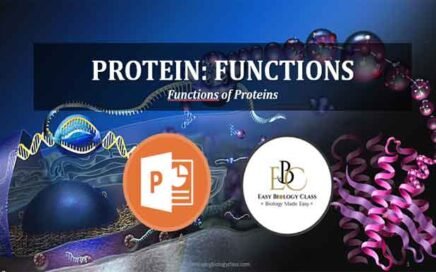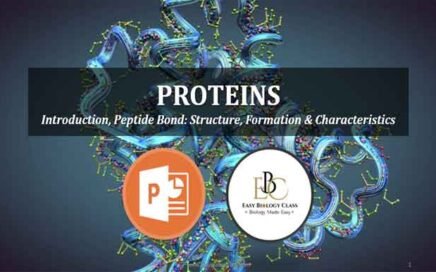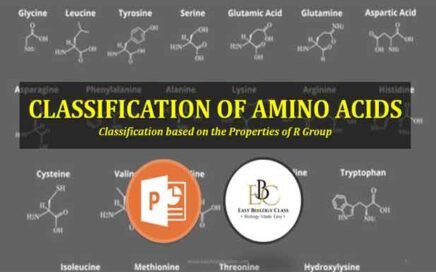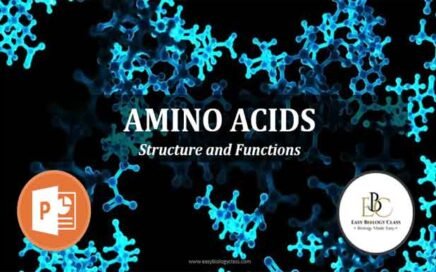
Cordaitales: Characteristics, Examples and Affinities
Cordaitales is an extinct group of primitive gymnosperms that thrived predominantly during the late Paleozoic era, particularly in the Carboniferous and Permian periods. They are […]

Cordaitales is an extinct group of primitive gymnosperms that thrived predominantly during the late Paleozoic era, particularly in the Carboniferous and Permian periods. They are […]

Functions of Proteins PPT: Proteins perform a vast array of essential functions in living organisms. Structurally, they provide support and shape to cells and tissues—collagen […]

Structure of Proteins PPT: Proteins are complex biomolecules made up of amino acids linked by peptide bonds, and their structure is organized into four levels. […]

Characteristics of Peptide Bond PPT: A peptide bond is a covalent bond formed between the carboxyl group of one amino acid and the amino group […]

Amino acids are classified based on the properties of their R groups, which influence their behavior in proteins. The main categories include nonpolar (hydrophobic) amino […]

Structure of Amino Acids PPT: Amino acids are organic compounds that serve as the building blocks of proteins. Each amino acid has a central carbon […]

Biosynthesis of Amino Acids PPT: Amino acid biosynthesis is a key cellular process where cells produce amino acids, the building blocks of proteins. It occurs […]

Principles of Gardening PPT: The principles of garden design and site selection focus on creating a harmonious and functional outdoor space. Unity and harmony ensure […]

Rhizome and Tuber Propagation PPT: Rhizome and tuber propagation involves growing new plants from underground stems or storage organs. In rhizomes, sections with buds are […]